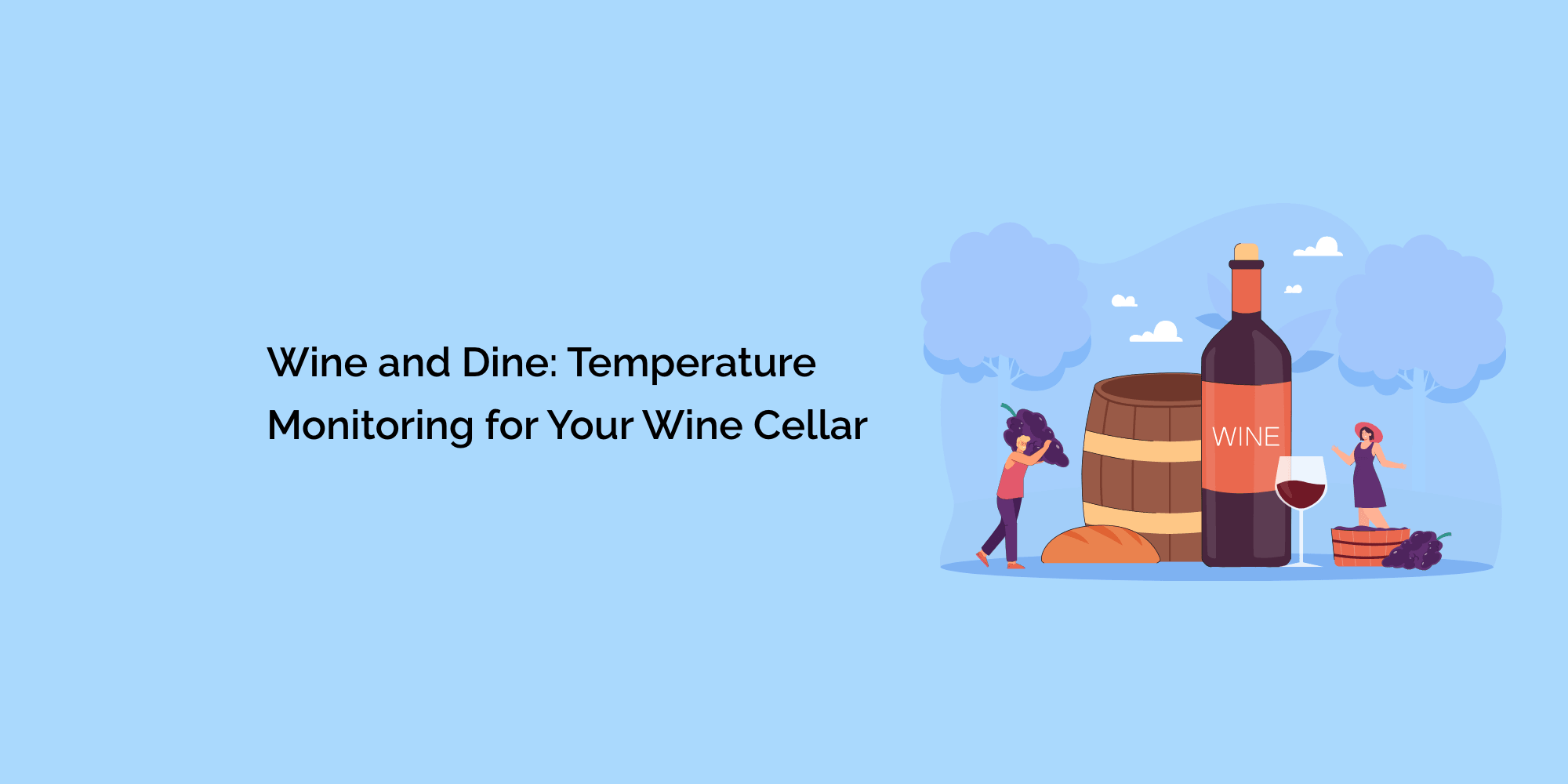Wine has been a symbol of luxury, celebration, and fine dining for centuries. Whether you're an avid collector or a casual wine enthusiast, you know that the proper storage of wine is essential for preserving its flavor and quality.
Temperature monitoring is a critical aspect of maintaining your wine collection, especially in a dedicated wine cellar.
In this blog, we'll explore the world of wine and delve into the importance of temperature monitoring for your wine cellar.
The Essence of Proper Wine Storage
Wine is a delicate beverage with complex flavors and aromas that can be easily affected by environmental factors. Temperature is one of the most critical elements that can influence your wine's aging process and overall quality:
1. Preservation of Flavor and Aroma: Wine's flavors and aromas are the result of a delicate balance of chemical reactions. Temperature fluctuations can disrupt these reactions and lead to undesirable changes in taste and scent.
2. Preventing Premature Aging: Extreme temperatures, whether too hot or too cold, can age wine prematurely, causing it to lose its potential for improvement and maturation.
3. Avoiding Oxidation: Consistent and moderate temperatures help prevent the oxidation of wine. Oxidation can result in off-flavors, making the wine less enjoyable.
4. Ideal Temperature Ranges: Generally, wines should be stored between 45°F (7°C) and 65°F (18°C). Different types of wine have specific temperature preferences, so it's essential to tailor your cellar's temperature accordingly.
Temperature Monitoring in Wine Cellars
Proper temperature monitoring is the cornerstone of wine cellar management. Here's why it's essential:
1. Ensuring Consistency: Maintaining a stable temperature is crucial. Fluctuations, even within the ideal range, can affect wine quality. A monitoring system helps you identify and address these fluctuations.
2. Early Detection of Issues: A temperature monitoring system can provide real-time data and send alerts if temperatures move outside the desired range. This allows you to take immediate corrective action.
3. Reducing Energy Consumption: Monitoring systems can also help optimize energy use. They can alert you if cooling or heating systems are working harder than necessary, potentially saving on energy bills.
4. Remote Monitoring: Many modern temperature monitoring systems allow remote monitoring via smartphone apps or web interfaces. You can check your cellar's temperature and receive alerts from anywhere, ensuring peace of mind even when you're away from home.
Selecting a Temperature Monitoring System
When choosing a temperature monitoring system for your wine cellar, consider the following factors:
1. Accuracy: Ensure that the system provides accurate temperature readings.
2. Data Logging: Look for systems that offer data logging, allowing you to track temperature trends over time.
3. Alerts and Notifications: Choose a system that can send alerts via email or mobile notifications when temperature thresholds are exceeded.
4. Remote Access: Opt for a system that offers remote access and monitoring capabilities for convenience.
5. Battery Backup: In case of power outages, a battery backup feature can ensure continuous monitoring.
6. Compatibility: Ensure the system is compatible with your specific wine cellar setup and storage capacity.
Conclusion
A wine cellar is a sanctuary for wine lovers, a place where bottles mature gracefully, and their flavors deepen over time. To ensure that your wine collection thrives, temperature monitoring is non-negotiable. Proper temperature control not only preserves the quality of your wines but also enhances your wine-tasting experience.
Whether you're a seasoned collector or just beginning your wine journey, investing in a reliable temperature monitoring system for your wine cellar is an essential step towards savoring the finest wines in all their glory. So, raise a glass to the perfect storage conditions that make your wine and dine moments truly exceptional.








